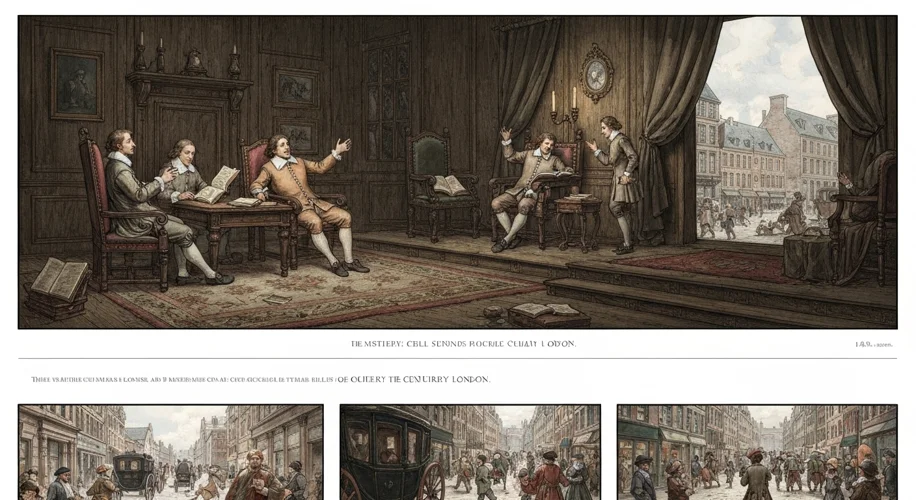In the grand tapestry of language evolution, some tongues boast a majestic tapestry woven by the careful hands of an official academy. Think of the Académie Française, meticulously curating the French language since the 17th century, or the Accademia della Crusca, diligently preserving Italian purity. Yet, English, a language spoken by billions and a global lingua franca, stands as a peculiar outlier – a language largely un-academied, its destiny shaped not by decree, but by the chaotic, vibrant currents of its speakers.
But why? What historical currents and cultural undercurrents prevented England, a nation keenly aware of its burgeoning global influence and literary prowess, from establishing its own linguistic guardian?
The seeds of this divergence can be traced back to the very soul of English society and its intellectual traditions. Unlike the more centralized and state-influenced cultures of France and Italy, England, particularly from the Renaissance onwards, fostered a spirit of individual enterprise and a distrust of overarching authority. The very idea of a government-sanctioned body dictating the “correct” way to speak or write English struck many as anathema to the nation’s burgeoning democratic ideals and its deeply ingrained common law tradition, which valued precedent and custom over absolute pronouncements.
Consider the intellectual climate of the 17th century, the very period when France established its academy. England was grappling with the tumultuous English Civil War, the execution of a king, and the eventual restoration of the monarchy. Amidst such upheaval, the notion of convening scholars to codify language might have seemed a luxury, or worse, an imposition. Furthermore, prominent figures like John Dryden, a titan of English literature, had earlier advocated for an English academy, but these calls were often met with skepticism and even outright dismissal. Dryden himself, in his “Essay of Dramatick Poesie” (1668), while lamenting the lack of an authoritative body, also expressed a certain satisfaction with the language’s organic development, a sentiment that would resonate through centuries.

Another crucial factor was the sheer, uncontainable dynamism of English itself. Unlike Latin, which had a fixed classical form, or Italian, which looked to the Tuscan dialect as a purist ideal, English was a language in constant flux. Its vocabulary was a voracious borrower, eagerly absorbing words from Norman French, Latin, Greek, and countless other languages encountered through trade, conquest, and exploration. This inherent flexibility, this almost colonialist appetite for linguistic acquisition, made it incredibly difficult to pin down and regulate. Any attempt by an academy to ‘purify’ the language would have likely been seen as an artificial constraint on its natural, robust growth.
The rise of powerful literary figures and the flourishing of printing also played a significant role. The works of Shakespeare, Milton, and later, the King James Bible, provided de facto standards for English usage. Their linguistic innovations and stylistic excellence became benchmarks, disseminated widely through the printing press. This decentralized influence, driven by literary merit and popular appeal, effectively bypassed the need for a centralized linguistic authority. Why establish an academy when the greatest minds of the age were already shaping the language through their compelling prose and verse?
Even when proposals for an academy did gain traction, they often faltered due to internal disagreements or a lack of sustained political will. For instance, a proposal in the early 18th century, championed by figures like Jonathan Swift, aimed to curb “corruption and degeneracy” in the language. However, it never materialized. Swift’s own satirical writings, while often critical of linguistic foibles, ultimately celebrated the language’s expressive power rather than demanding rigid control.
The legacy of this absence is profound. It has allowed English to remain remarkably adaptable, a testament to its speakers’ collective agency. While this lack of formal oversight has, at times, led to what some perceive as ‘errors’ or inconsistencies, it has also fueled its incredible reach and resilience. The story of the English language is not one of a carefully cultivated garden, but of a wild, sprawling forest, shaped by countless hands and weathered by the winds of history. It is a language that learned to govern itself, a unique narrative in the grand story of human communication.
What if an English Academy had been established? Would the language be richer or poorer for it? The absence of such an institution is not a void, but a statement – a declaration of English’s inherent dynamism and the enduring power of its people to shape their own linguistic destiny.

